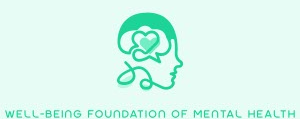Youth Records Old Wisdom
Bridging the Gap Between
The Urban Young and Rural Aged in Jamaica
For many older people in a changing world, the worst deprivation is their loss of role and prestige. Traditionally in most societies the elder has been respected as a valuable member of the community and a prime source of knowledge about all things. Modernization has emphasized the education of the young and relegated many older people into a kind of second-class citizenship, unable to cope with new technology.
In order to restore something of the pride of ageing, a programme was introduced in Jamaica which had its focus on pupils in urban schools. The children were equipped with tape recorders and sent out, often into more remote rural areas where the effect of modernization had been less intense. Under the supervision of teachers, the pupils were introduced to older people who remembered much of the traditional culture which was now disappearing.
The process was a simple interview in which the older person was encouraged to remember any aspect of “old-time” life. This could be legends, songs, dances, children’s games, diet, roles in society and so on. While the purpose of the pupils was simply to tape record these impressions, in most cases the experience developed into a sharing of “old-time” enjoyment and an understanding that the sophisticated urban style of life was not in most senses superior to the rural situation. The pupils were soon able to report back verbally, without help from their tapes, as to the unique features of their own country’s culture. Much of this was in danger of being submerged by the impact of technical education, mass media images of old age and rural culture, and modern non-participatory entertainment.
Because the outcome would be a mass of material which might, in a few years time be irreplaceable, it was possible to obtain finance (involving the cost of tape recorders, tapes and systems of archive after the interviews) from museum and other research sources viewing this as not merely an “age welfare” project. The final product, in terms of the taped material, is indeed now a valuable resource for future generations, treasured in the national museum. It has also, for many young people, rectified false impressions about ageing and traditional national culture and values.
To obtain more information about this project, please contact Dr. Kenneth Tout, OBE, Ph.D., MIPR, and consultant to the United Nations Secretariat for the International Year of Older Persons: 136 Church End Lane, Runwell, Wickford, Essex SS11 7DP, United Kingdom. Telephone: 01268 561176.
In Your Community
- If there is a library or museum in your neighborhood, talk with staff and officers to learn how much interest there might be in preserving local folklore.
- Find out how much help the library and/or museum may be willing to supply in loaning tape recorders, tapes, cameras or other equipment for preserving the material that will be generated by your project.
- Locate schools from which young interviewers can be selected. Approach school administrators concerning student participation.
- Work with educators to determine the most appropriate ages and grade levels. Make a listing of teachers and classes to be involved. Meet with the selected teachers to develop their interest and cooperation. Draw up a plan for class participation.
- Identify residential facilities and local programs for older persons. These can be utilized as resources in finding practical candidates for interviewing.
- Coordinate the time and method for selecting those who will be interview subjects. (Grandparents or other relatives/friends of the interviewer’s family may also serve as interview candidates.)
- Work with educators to ensure that students comprehend the purpose of this project. Interview subjects should also understand that by sharing individual wisdom and personal recollection, later generations will be able to gain an enhanced understanding of the history of their community and ethnic culture.
- Implement a method of organizing and storing the interview results which provides easy accessibility for all who are interested.
- Arrange for publicity. Let the public know that the material is available. Give recognition to the students and older people whose efforts made it possible!
If there is no library in your community, World Mental Health Day can be used as a vehicle for starting one. A shelf or two in the corner of the Market or General Store, and a few volunteers are all that is needed.
- Search for sources of materials to be donated.
- Develop a simple sign-up sheet for keeping track of when books are loaned out and returned.
- Display a community poster board and provide the public with frequently updated educational information.
- Coordinate the timing of your activities so that World Mental Health Day can be used as a launching date for your new public library!
